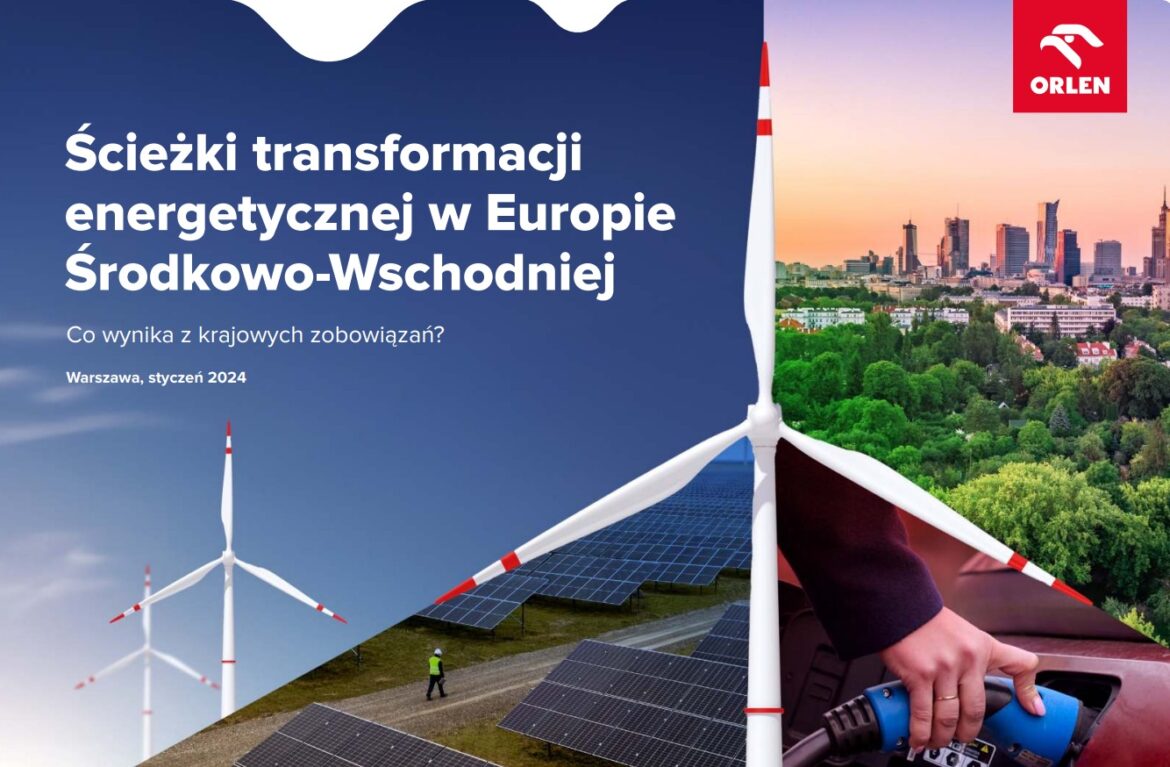ORLEN Group has prepared the first comprehensive report describing the pace and directions of energy transformation in Central and Eastern Europe. The analysis of the region’s energy markets makes it possible to define the region’s potential, but also shows its distinct conditions compared to the rest of the European Union, resulting from geopolitics and wealth levels.
The region’s energy transition paths in the 2050 perspective were developed based on current regulations and aspirations in eleven Central European countries plus Germany and Austria. The analysis is divided into two scenarios, assuming the fulfilment of current energy and climate commitments and an increase in national ambitions.
The report comprehensively defines the opportunities and challenges for national economies in relation to both meeting environmental targets and the need for long-term energy security.
It also analyses the pathways away from fossil fuels in the individual countries of the region, while indicating the potential for the development of technologies to enable this process. It also comprehensively reveals projections for changes in transport, which, alongside industry, will be key to meeting climate targets.
An important element of the report is also the definition of regional security challenges, which have taken on particular importance in the wake of the war in Ukraine. Since Russia’s attack on Crimea, Central Europe has prepared for and been able to rapidly derisk its resource base. Now, the region faces the need for long-term energy security and a sustained reorientation of energy policy. In this context, the Baltic Sea, which has been and still is an important source of supply for the entire region during the raw material crisis and additionally has a large potential in renewable energy, is of particular importance.
Adrian Andrzejewski





